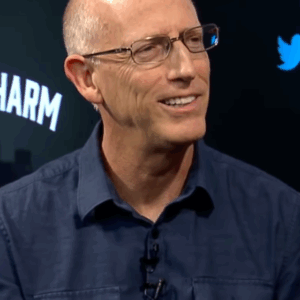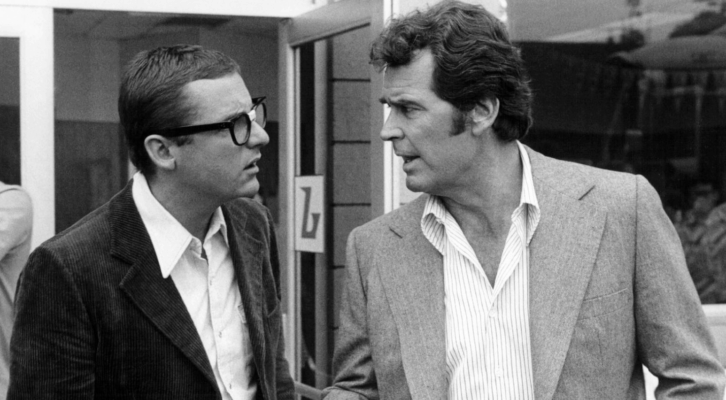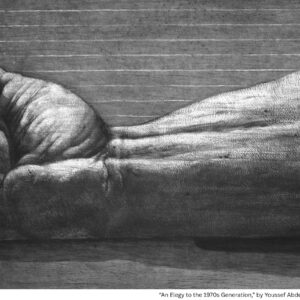
Virginie Despentes on Continuing the Feminist Revolution
“The weaker sex—that’s always been a joke.”
Browsing online, I accidentally stumble on a letter by Antonin Artaud. A breakup letter, or a trial-separation letter, at least, to a woman he claims he cannot love. Okay, I accept that, from his point of view the whole thing was complicated. But the basic gist of it is this: “I need a woman who is mine alone, who I can find at home at any hour. I am desperately lonely. I can no longer come back in the evening, to my room, alone, and without any of the comforts of life to hand. I need a home, and I need it now, and a woman to ceaselessly take care of me in even the slightest things. An artist such as you has her own life and cannot do this. Everything I am saying to you is brutally selfish, but that is how it is. It is not necessary that this woman be particularly pretty, nor do I want her to be excessively intelligent, and in particular, she must not think too much. It is enough that she be mine.”
Ever since I was little, when I’d watch cartoons like Goldorak and Candy right after school, I’ve always loved reversing things, just for the hell of it.
“I need a man who is mine alone, who I can find at home at any hour.” Immediately, it sounds completely different. Man does not exist to stay at home, to be possessed. And if I did need or want a man to be “mine alone,” all available evidence suggested I’d be better off controlling my passion and, conversely, being his alone. It’s not the same thing at all. Nobody has been politically designated to sacrifice their life in order to make mine more comfortable. The utilitarian relationship doesn’t cut both ways. In the same way, I could never bring myself—in all good selfish faith—to write: “I need a home, and I need it now, and a man to ceaselessly take care of me in even the slightest things.” If I should ever meet such a man, it would be because I have the means to pay him. “It is not necessary that this man be particularly cute, nor do I want him to be excessively intelligent, and in particular, he must not think too much. It is enough that he be mine.”
My power will never depend on the feudal fealty of the other half of humanity. One in every two human beings has not been put on this earth to serve me, take care of my home, raise my children, pleasure me, entertain me, reassure me as to the keenness of my intelligence, bring me succor after battle, tend to my food . . . and thank fuck for that.
I am of this gender, the one that is expected to stay silent, the one that is silenced.
In literature written by women, examples of insolence or hostility toward men are extremely rare. Censored. Even as a member of that sex, I’m not allowed to be angry about this. Colette, Duras, Beauvoir, Yourcenar, Sagan, a whole canon of female authors anxious to prove their credentials, to reassure the men, to apologize for writing by endlessly repeating how much they love, respect, and cherish men, and how they have no desire—whatever they might write—to fuck them over. We all know that if you don’t, the baying pack will tear you to pieces.
*
Antonin Artaud dies in 1948. Genet, Bataille, Breton; men are breaking the boundaries of what can be said. Violette Leduc begins writing what will become Thérèse and Isabelle. An extraordinary novel. On reading it, Beauvoir immediately writes: “There can be absolutely no question of publishing it. It is a story of lesbian sexuality as crude as Genet.”
Violette Leduc tones down the novel, only for Raymond Queneau to curtly turn it down: “Impossible to publish openly.” Not until 1966 did Gallimard finally publish it.
I am of this gender, the one that is expected to stay silent, the one that is silenced. And we are expected to take it with good grace, to fall into line. Otherwise, obliteration. Men know on our behalf what we can say about ourselves. And women, if they want to survive, have to learn to understand the way of things. And don’t come telling me that things have evolved, that we’ve all moved on. Not to me. As a woman writer, I have to put up with twice as much shit as a man.
In editing Sartre’s letters, Simone de Beauvoir opens Lettres au Castor (Witness to My Life) with his very first letter to her:
Would you be so kind as to give my dirty laundry (bottom drawer of the wardrobe) to the laundress this morning? I’m leaving the key in the door. I love you tenderly, my darling. You had such a cute little look on your face yesterday, when you said, “Ah, you were looking at me, you were looking at me,” and when I think of it, my heart melts with tenderness. Au revoir, petit Bon.
Let’s turn it around, let’s turn the whole thing around, the dirty laundry and the cute little look. We have a better sense of what defines our sex: other people’s dirty laundry and cute little looks.
*
Being a writer, politics has done everything it can to slow me down, handicap me, not as an individual, but as a woman. This isn’t something I accept gracefully, philosophically, pragmatically. It’s something imposed on me, and I deal with it. Furiously. Humorlessly. Even if I bow my head and hear all the things I don’t want to hear, and keep my mouth shut because I’ve got no alternative. But I’m not about to apologize for what’s imposed on me, or pretend I think it’s awesome.
Describing a Black American slave woman, Angela Davis writes, “A field hand in Maryland, she learned through her work that her potential as a woman was the same as any man’s.”
The weaker sex—that’s always been a joke.
Go ahead and be condescending about the Black women shaking their booties with disturbing efficiency in 50 Cent videos, pity them because they’re allowing themselves to be degraded: they are the daughters of slaves, they worked like men, they were whipped like men. Angela Davis: “For women were not only whipped and mutilated, they were also raped.” Forcibly impregnated and left to raise their children alone. And they survived. Women have endured not only the history of men, like men, but their own specific oppression. Of staggering brutality. Hence this modest proposal: fuck the lot of you, fuck your condescension toward us, your displays of force backed up by the collective, your ad hoc protection, your manipulative attempts to cast yourselves as victims who find women’s emancipation difficult to deal with. What is difficult to deal with, even today, is being a woman, and having to put up with your shit. The benefits you gain from our oppression are booby-trapped. When you defend your male privileges, you sound like doormen in grand hotels who act like they own the place . . . arrogant flunkies, nothing more.
When the capitalist world crumbles and can no longer meet the needs of men—no more work, no more dignity at work, cruel and preposterous economic constraints, administrative frustrations, bureaucratic humiliations, the certainty that you’re being scammed whenever you buy something, it’s we women who get the blame again. It’s our emancipation that makes them miserable. It’s not the political system that’s at fault, it’s women’s liberation.
Would I want to be a man? I’m better than that. I don’t give a flying fuck about having a penis. I don’t give a fuck about beards and testosterone; I’ve got all the aggressiveness and the courage that I need. But obviously I want it all, like a man. In a man’s world I want to challenge the law. Head-on. Not indirectly, not apologetically, I want more than I was promised in the beginning. I don’t want to be silenced. I don’t want to be told what I can and cannot do. I don’t want to be sliced open so I can have bigger tits. I don’t want the body of a willowy girl when I’m pushing forty. I don’t want to back down in a fight for fear of revealing my strength and thereby risk losing my femininity.
A hostage is released and in her first radio interview, she says: “Finally, I’ve been able to shave my legs, put on some perfume, rediscover my femininity.” Or at least that’s the snippet they decide to broadcast. She doesn’t want to go out on the town, see her friends, read the papers. She wants to shave her legs? That’s absolutely her right. But please—don’t expect me to think it’s normal.
Monique Wittig: “Here we are again today, caught in the trap, the same familiar deadlock of ‘being-a-woman-is wonderful.’”
A message happily proclaimed by men. And passed on by female accomplices, always eager to defend their masters’ interests. God, but middle-aged men love telling us about ourselves. They never mention the logical conclusion to the phrase “being-a-woman-is wonderful”: as long as you’re young, slim, and attractive to men. Otherwise there’s nothing wonderful about it. It’s just twice as alienating.
*
Men love to talk about women. It spares them from talking about themselves. How is it possible that in thirty years not a single man has written an original essay on the subject of masculinity? If they’re so voluble and so competent when it comes to holding forth about women, why this utter silence about themselves? Because we know that the more they talk, the less they say. About what is essential, about what they are really thinking. Maybe they want us to talk about them? Maybe they want to hear what their gang rapes feel like, from another perspective? It’s like they want to see themselves in the act of fucking, checking out each other’s dicks, getting hard, all of them together, like maybe they want to stick it to each other. It’s like they’re scared to admit to themselves what they actually want: to fuck each other. Men love men. They spend half their lives telling us how much they love women, but we know they’re lying. They love each other. They fuck each other by fucking women, a lot of them are thinking about their friends while their cock is in some cunt. They watch each other in the movies, giving each other the plum roles, they see themselves strutting, powerful, they can’t believe how strong, how ripped, how brave they are. They write for each other, congratulate each other, support each other. That’s a good thing. But when you have to listen to the constant whining that women don’t fuck enough, don’t enjoy sex the way they should, don’t understand shit, you can’t help but wonder: What are they waiting for, why don’t they just fuck each other? Go ahead. If it makes you happy, great. But among the things so decorously drummed into them is the fear of being faggots, the obligation to love women. So they stick to the straight and narrow. They grumble, but they get on with it. Along the way, they might beat up a girl or two, frustrated at having to make do.
*
There was a feminist revolution. Words were spoken, in spite of polite propriety, in spite of animosity. And they continue to pour out. But so far there’s been nothing about masculinity. The terrified silence of delicate little boys. It’s getting ridiculous. The so-called stronger sex that constantly needs to be protected, reassured, cared for, coddled. Protected from the truth. That women are sharks like everyone else, that men are whores and mothers, all caught up in the same maelstrom. There are men better suited to picking flowers, interior design, and taking the kids to the park, and women built to lobotomize mammoths, make noise, and lay ambushes. Each to their own. The eternal feminine is a huge joke. It’s as if men’s lives depend on preserving this lie . . . femme fatale, bunny girl, nurse, Lolita, whore, devoted mother, or ballbusting bitch. It’s all a performance. A series of precise moves and costumes. How can that be reassuring? What exactly are they afraid will happen if these fictional archetypes crumble: whores are ordinary women, mothers are not innately good or brave or loving, no more so than fathers—it depends on the people, the circumstances, the moment.
*
The freedom from macho bullshit—a scam that only psychos find comforting. The admission that you don’t give a fuck about respecting assigned gender roles. An artificial charade. What is the freedom that so terrifies men that they continue to say nothing, to devise nothing? To come up with no new or original discourse or critique about their own condition?
When do we get men’s liberation?
It’s up to them, to you to seize your independence. “Yeah, but what if you’re gentle? Women prefer tough guys,” snivel the old favorites. That’s not true. Some women are attracted to power, they don’t fear it in others. Power is not the same as brutality. The concepts are very different.
LEMMY ERIC CANTONA CATHERINE BREILLAT PAM GRIER CHARLES BUKOWSKI CAMILLE PAGLIA ROBERT DE NIRO ANNIE SPRINKLE JOEY STARR TONY MONTANA ANGELA DAVIS ETTA JAMES TINA TURNER MUHAMMED ALI CHRISTIANE ROCHEFORT HENRY ROLLINS AMELIE MAURESMO MADONNA COURTNEY LOVE LYDIA LUNCH LOUISE MICHEL MARGUERITE DURAS DAVID PEACE CLINT EASTWOOD JEAN GENET . . . It’s a question of mindset, of courage, of defiance. There is a kind of strength that is neither masculine nor feminine, one that intimidates, terrifies, reassures. An ability to say no, to impose one’s opinion, not to duck the issue. I don’t give a shit whether a hero has a skirt and huge tits, or is hung like a horse and smokes a cigar.
Obviously, being a woman is difficult. Fears, constraints, required to be silent, expected to fall in with a system that has long since had its day—a panoply of idiotic, pointless limitations. We are still the aliens, the ones expected to do the dirty work and churn out the raw materials while keeping a low profile. But compared to being a man, it’s a walk in the park . . . Because in the end, we’re not the ones who are most terrorized, most helpless, most shackled. Ours has always been the gender of endurance, of courage, of resistance. Not that we had a choice.
True courage. Facing up to what is new. Possible. Better. Employment is collapsing? The family is imploding? Good! This automatically challenges notions of masculinity. More good news. We’ve already had enough of this shit.
Feminism is a revolution, not a restructuring of marketing guidelines, not some vague promotion for cocksucking or partner-swapping, this is not just about increasing supplementary income. Feminism is a collective venture, for women, for men, and others. A revolution that is well underway. A vision of the world, a choice. It’s not about pitting the miserable gains by women against the miserable gains by men, it’s about blowing the whole fucking thing sky-high.
And on that note, so long, girls, may the road ahead be better . . .
__________________________________

Excerpted from King Kong Theory by Virginie Despentes. Published by Farrar Straus and Giroux. Copyright © 2006 by Éditions Grasset & Fasquelle. English translation copyright © 2020 by Frank Wynne. All rights reserved.
Virginie Despentes
Virginie Despentes is a writer and filmmaker. She worked in an independent record store in the early '90s, was a sex worker, and published her first novel, Baise Moi, when she was twenty-three. She adapted the novel for the screen in 2000, codirecting with the porn star Coralie Trinh Thi. Upon release, it became the first film to be banned in France in twenty-eight years. Despentes is the author of more than fifteen other works, including Apocalypse Baby, Bye Bye Blondie, Pretty Things, and the essay collection King Kong Theory.



















